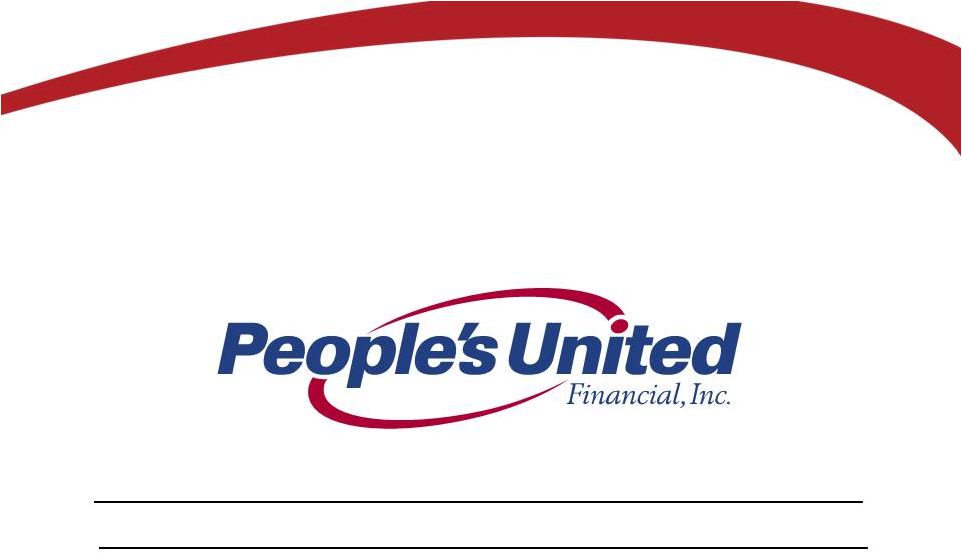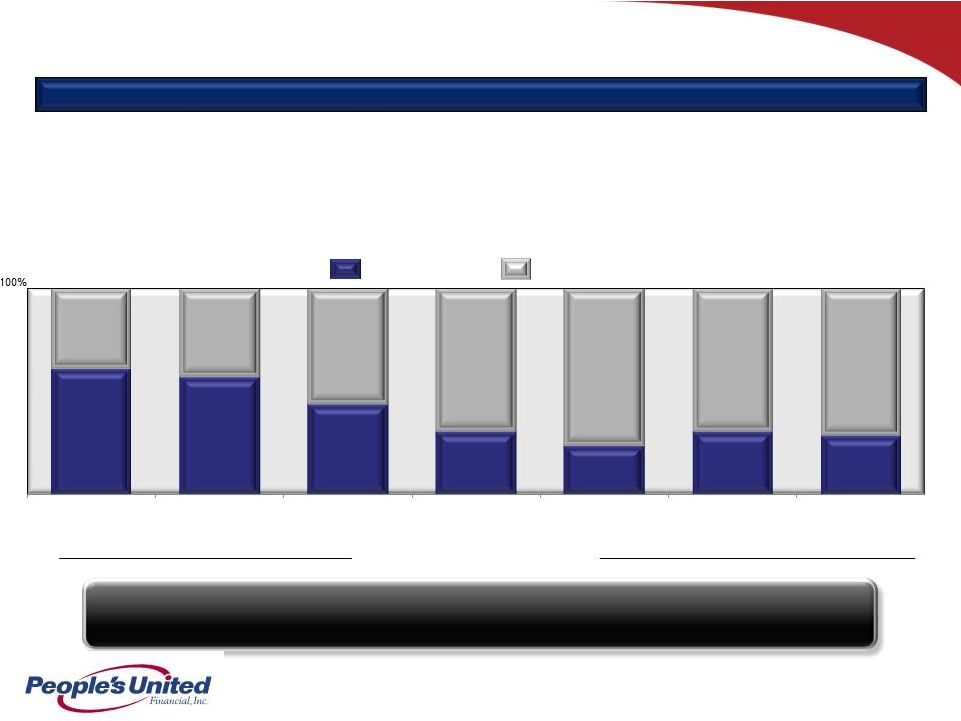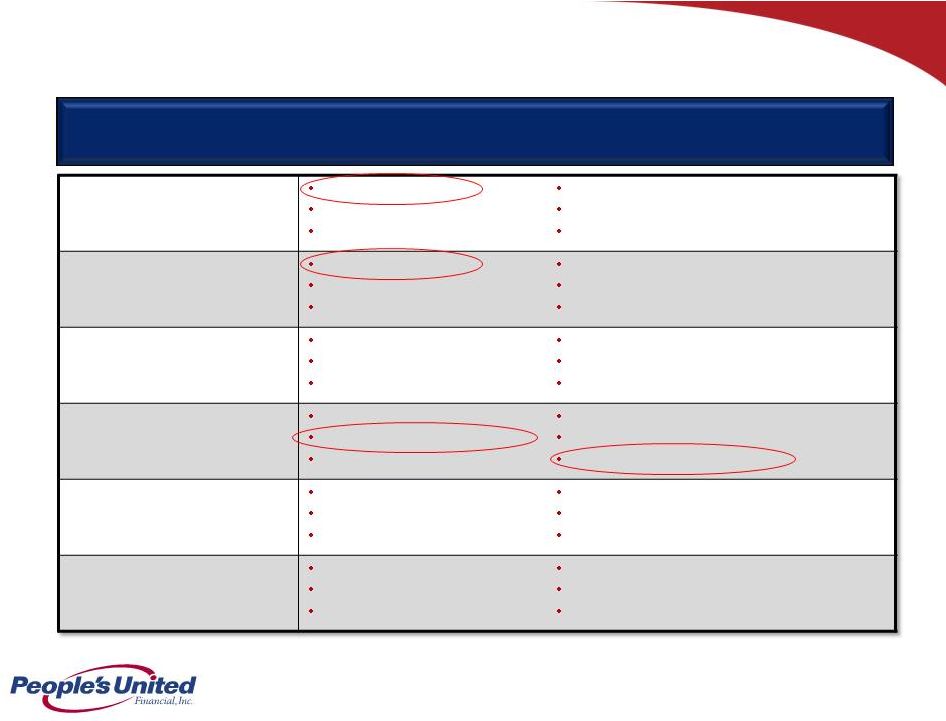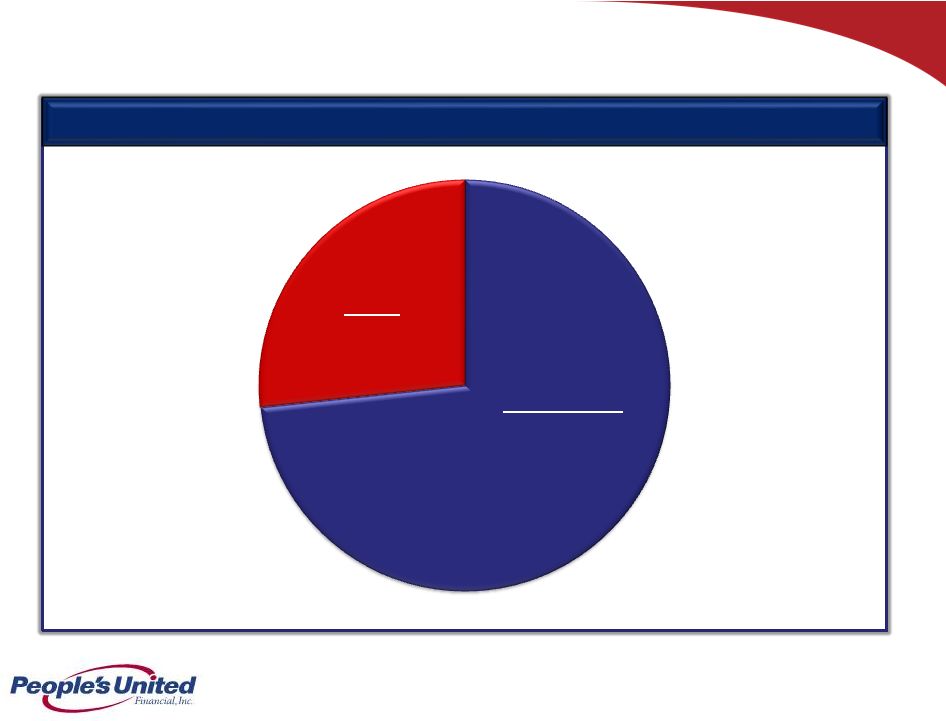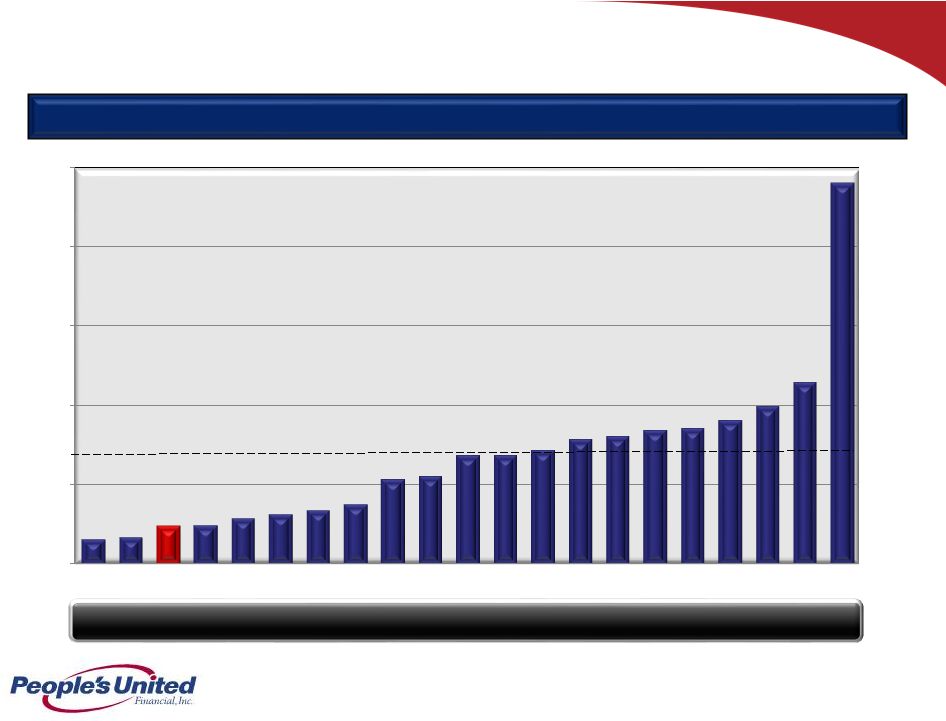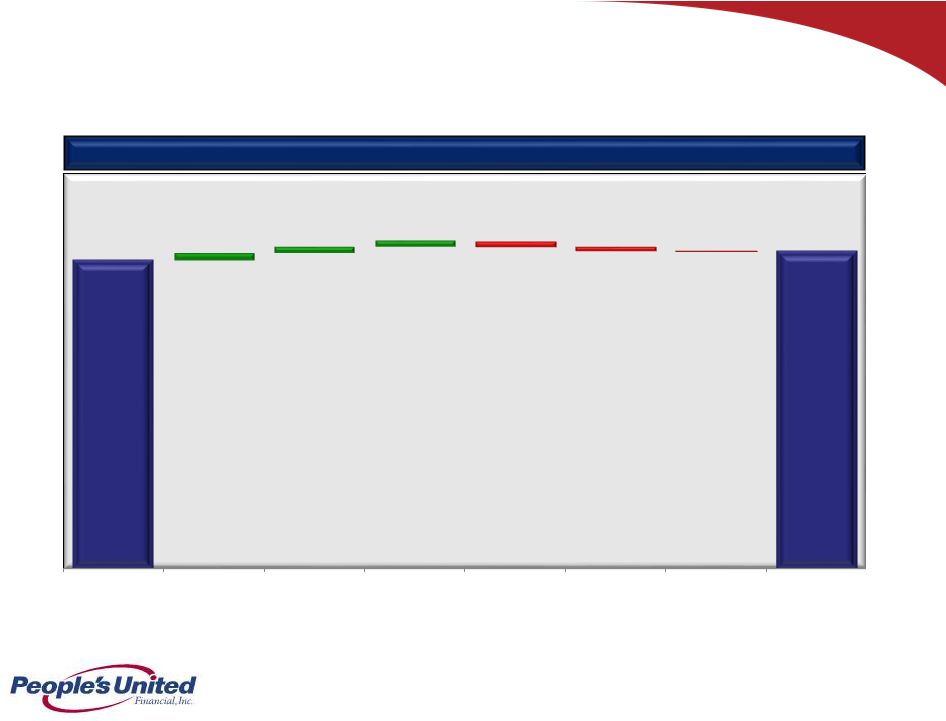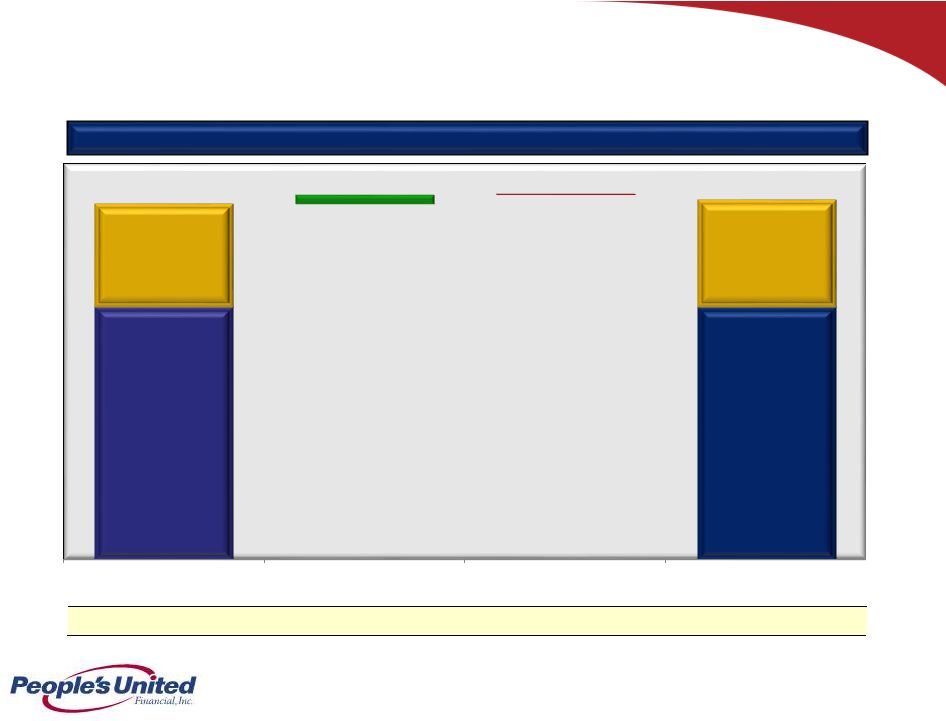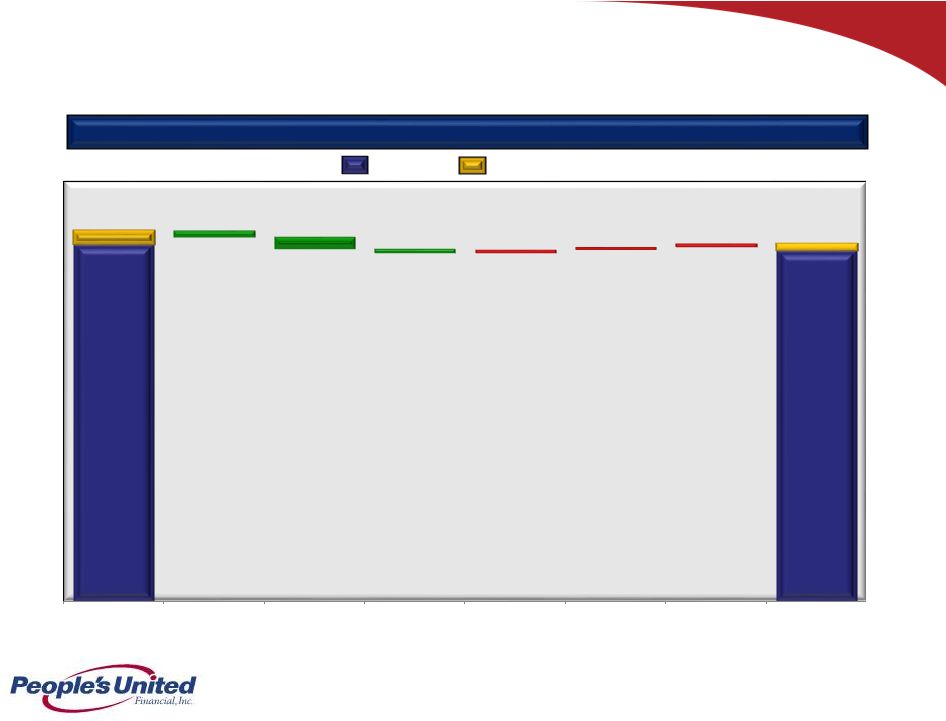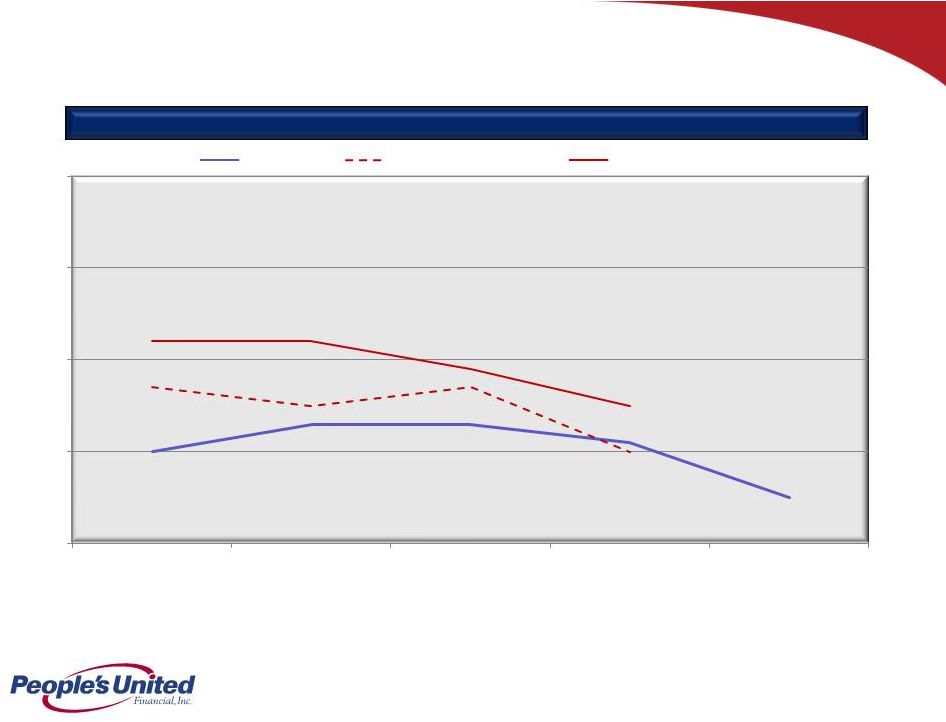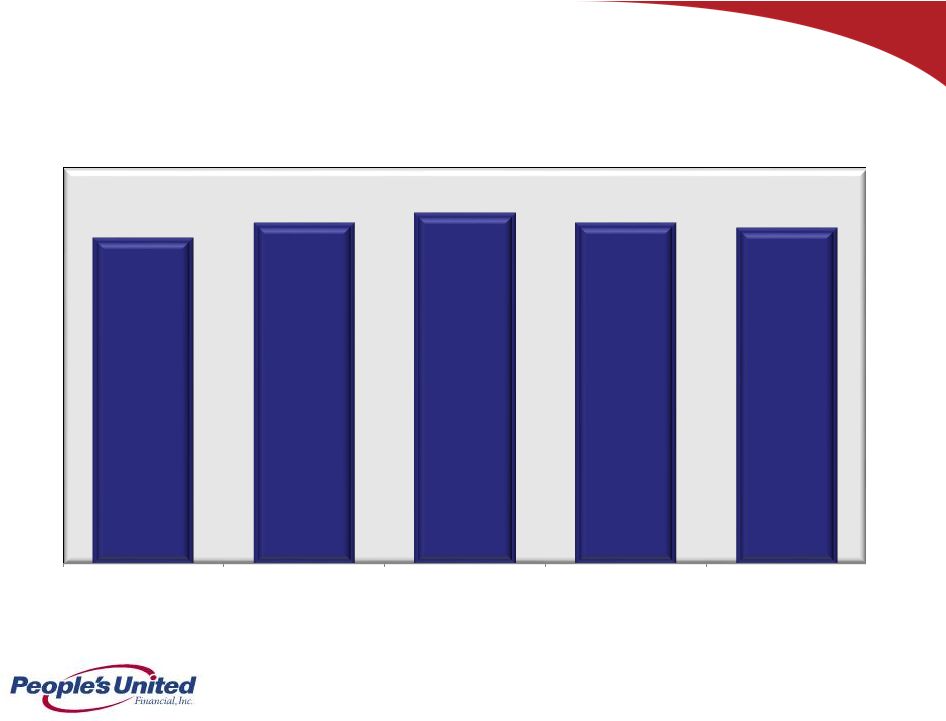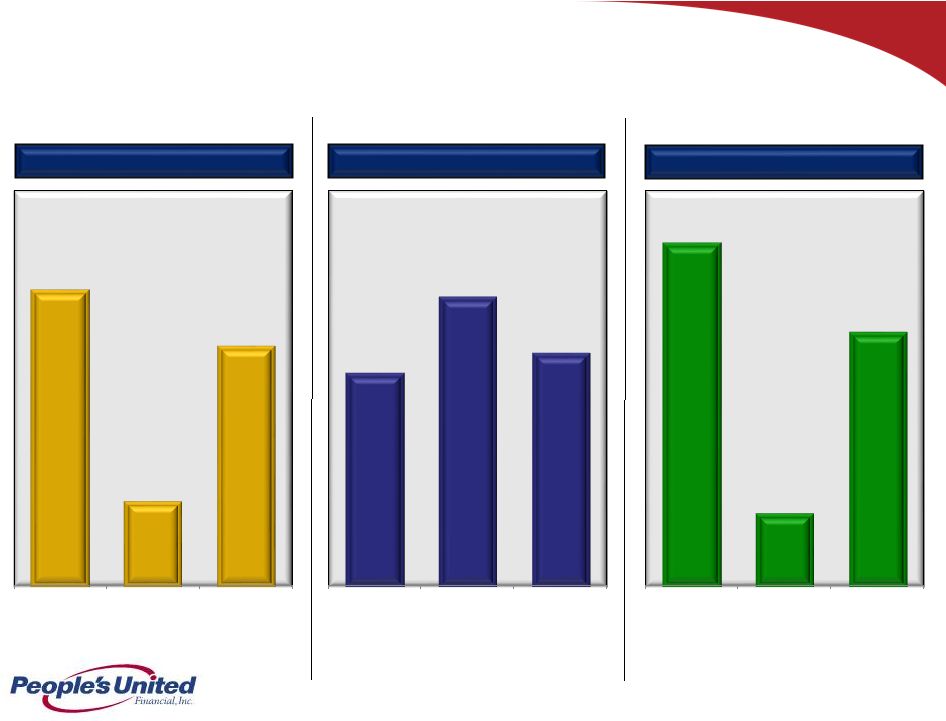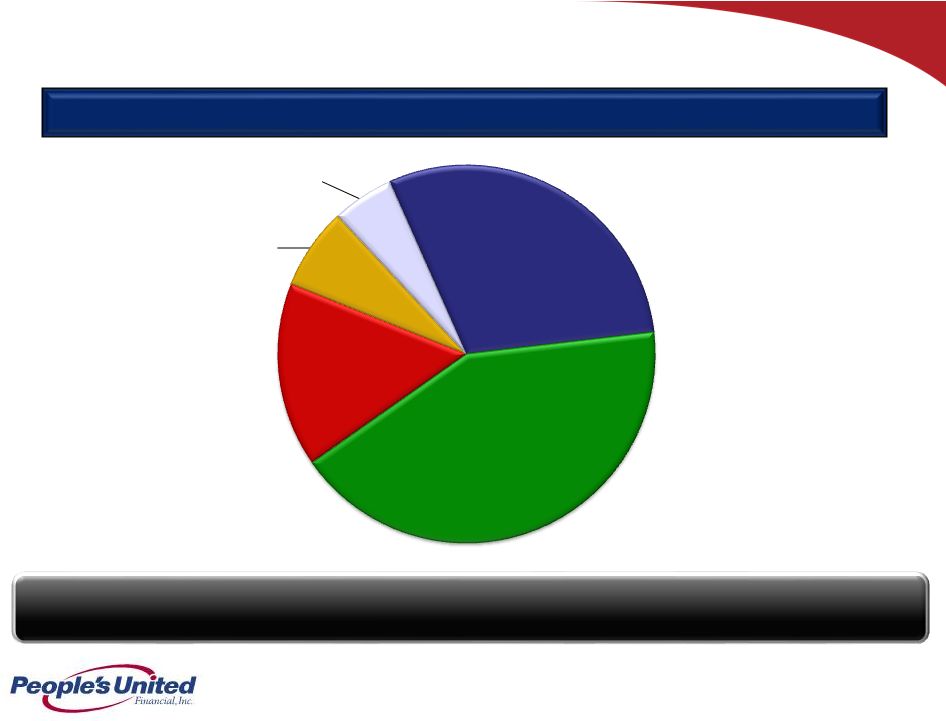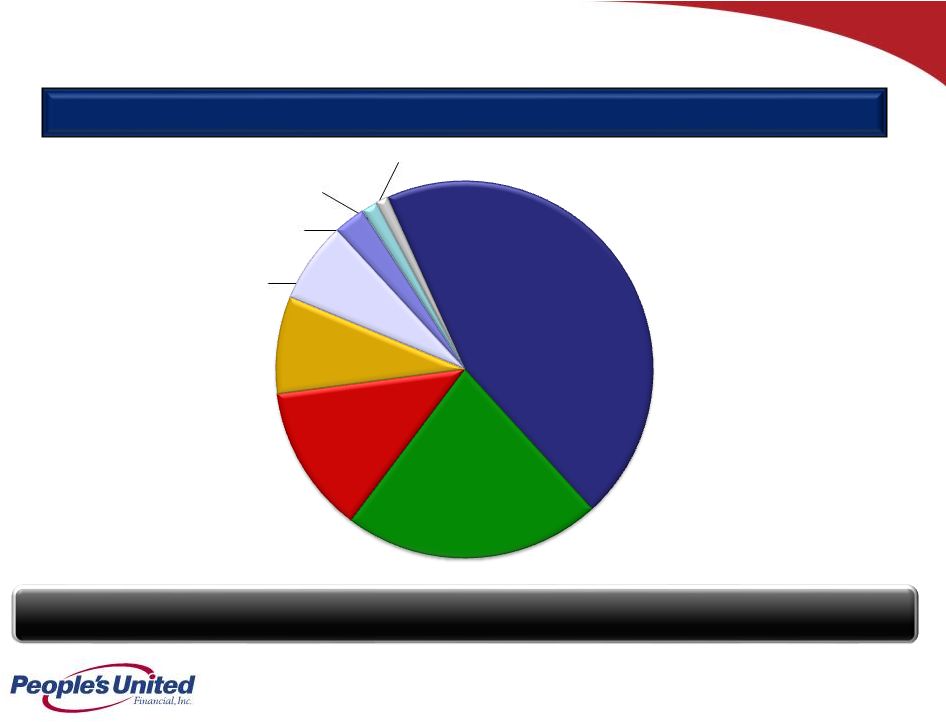43 Non-GAAP Financial Measures and Reconciliation to GAAP In addition to evaluating People’s United Financial’s results of operations in accordance with U.S. generally accepted accounting principles (“GAAP”), management routinely supplements this evaluation with an analysis of certain non-GAAP financial measures, such as the efficiency and tangible equity ratios, tangible book value per share and operating earnings metrics. Management believes these non-GAAP financial measures provide information useful to investors in understanding People’s United Financial’s underlying operating performance and trends, and facilitates comparisons with the performance of other financial institutions. Further, the efficiency ratio and operating earnings metrics are used by management in its assessment of financial performance, including non-interest expense control, while the tangible equity ratio and tangible book value per share are used to analyze the relative strength of People’s United Financial’s capital position. The efficiency ratio, which represents an approximate measure of the cost required by People’s United Financial to generate a dollar of revenue, is the ratio of (i) total non-interest expense (excluding goodwill impairment charges, amortization of other acquisition-related intangible assets, losses on real estate assets and non-recurring expenses, which are also excluded in arriving at operating non-interest expense) (the numerator) to (ii) net interest income on a fully taxable equivalent ("FTE") basis plus total non-interest income (including the FTE adjustment on bank-owned life insurance ("BOLI") income, and excluding gains and losses on sales of assets other than residential mortgage loans and acquired loans, and non-recurring income) (the denominator). In addition, operating lease expense is excluded from total non-interest expense and netted against operating lease income within non-interest income to conform with the reporting approach applied to fee-based businesses already presented on a net basis. People’s United Financial generally considers an item of income or expense to be non- recurring if it is not similar to an item of income or expense of a type incurred within the last two years and is not similar to an item of income or expense of a type reasonably expected to be incurred within the following two years. | 